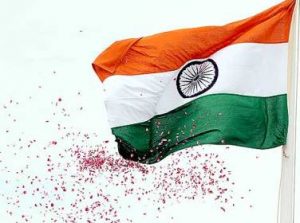
Janjivan Bureau
New York: Recalling Mahatma Gandhi’s exhortation that “we must ourselves become the change we seek”, Foreign Secretary S. Jaishankar said Friday that India is living up to the internationalism that Mahatma Gandhi championed.
Addressing a distinguished gathering that included the president of the UN General Assembly, Morgans Lykketoft, and the Secretary General of the United Nations, Ban Ki-moon, at an event to commemorate the International Day of Non-Violence at the UN headquarters here, Jaishankar said, “Gandhiji bequeathed to us three guiding principles – Ahimsa or Non- violence, Satyagraha or the force born of truth and Sarvodaya or upliftment of all. These continue to provide the world with approaches to address a range of complex challenges, many of which may not have even existed during his lifetime.”
India’s diplomacy, he said, is focused today on a broad range of global issues that serve the broader interests of humanity.
“When we do HADR operations in Yemen and Nepal, helping those in distress irrespective of nationality, we are living up to the internationalism that Mahatma Gandhi championed. When we advocate disarmament and peaceful resolution of disputes, we are taking into the contemporary world his philosophy of active non-violence,” he added.
In observing Mahatma Gandhi’s birth anniversary as the International Day of Non-Violence, the Indian foreign secretary said that Friday’s meeting “testifies to the collective homage of the world community to one of the greatest men of all times, a homage that rises above politics and speaks for all of human kind.”
He described Mahatma Gandhi as a paradox to and of orthodox thinking.
“He was a revolutionary, yet a realist. He was visionary, but a person of details. He was practical, and yet imbued with idealism. Perhaps, it is the limitations of our own imagination that make it difficult to reconcile different aspects of his personality and activities. What is, however, indisputable is that after almost seven decades since he left us, Mahatma Gandhi’s relevance is recognized more than ever before,” Jaishankar said.
He further stated, “The merits of non-violence, questioned so strongly even as he fashioned it into a weapon to bring down the greatest empire of our times, is today widely recognized. History has demonstrated that the outcome of non-violent change is more durable, because it is an outcome of persuasion and not coercion.”
He, however, cautioned that it would be an error to define non-violence only as an activity.
“As Gandhiji often pointed out, there can be violence in thought, in behavior, and even in habits. Discrimination, disregard and disrespect are all manifestations of this. Gandhiji’s teachings can be applied across a very wide spectrum of human activities. Indeed, he demonstrated it even by his own achievements. His message of peace and non-violence was global. His advocacy of social change and upliftment was national. And many of his axioms and beliefs, including on lifestyle, were personal,” the foreign secretary said.
“Today, as India embarks on a new era of change and development, this legacy serves very much as a guiding light,” he added.
He said that India’s support for Sustainable Development Goals, should be seen as an expression of this outlook that emphasizes upliftment of all.
“At home, these goals are being implemented through a variety of national campaigns. Swachch Bharat or Clean India is completely in the Gandhian spirit, not coincidentally launched this very day last year. The Beti Bachao, Beti Padao addresses gender discrimination to which Mahatma was particularly sensitive. He would have approved of our efforts to empower girls through education. The Make in India and Skill India programmes create not just employment, but the basis for human dignity. Digital India will connect and develop 600,000 villages for whom Gandhiji felt so deeply,” Jaishankar said.
He described Gandhi as the original sustainable development guru, a man who believed deeply that the world had enough for human need, but not greed.
“Today, as we advocate fairer use of carbon space and more climate-sensitive lifestyles, I have no doubt that we would have his blessings. Appropriately India chose to announce its INDC on Mahatma Gandhi’s birthday. This was to underline our moral commitment to sustainable development. We aim to reduce emissions intensity of GDP by 33-35 percent by 2030 from the 2005 level. Our expectation is that by 2030, 40 percent of our electricity generation would be from non- fossil sources. We are also working to expand our carbon sink by 2.5 to 3 billion tonnes of CO2 equivalent by that time,” he said.
On the growth of religious bigotry and intolerance, he said that this has directly fuelled support and sponsorship of terrorism.
“Unfortunately, the world has often looked away when terrorists have attacked innocents, assuming that it is not their problem. As a believer in the indivisibility of the world and the importance of moral courage, Gandhiji would ask us all to stand up and be counted. We have faith that that day may yet come,” he said.
India living up to internationalism that Mahatma Gandhi championed: Foreign Secretary
ADVERTISEMENT

















